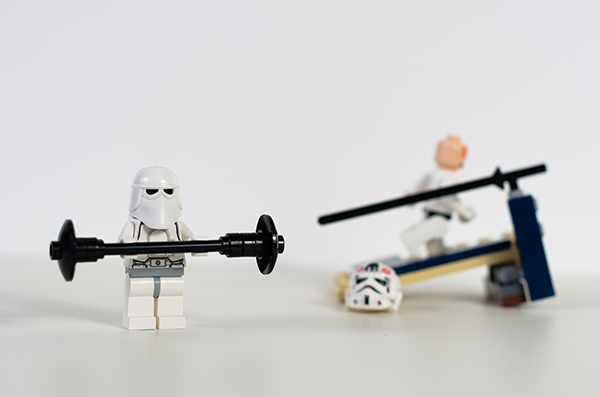Have you made a new resolution for 2016? According to a YouGov poll, over 60% of people did last year. The most popular resolutions in 2015 were losing weight, getting fitter, eating more healthily. Unfortunately, studies also show that only about 8% of people are successful in achieving their resolution. So why do so many fail?
Too extreme (revolutionary)
Psychologist Lynn Bufka tells us to be realistic: “Make resolutions that you think you can keep. If, for example, your aim is to exercise more frequently, schedule three or four days a week at the gym instead of seven.” Roy Baumeister agrees, recommending that you always “begin with something small and doable”.
Too many of them
“Change one behaviour at a time … Don’t get overwhelmed and think that you have to reassess everything in your life. Instead, work toward changing one thing at a time”, Bufka recommends. Baumeister believes that we all have a limited amount of will power to change, meaning that “multiple resolutions all work against each other and undermine each other’s chances of success.”
Too vague
For a resolution to be effective, it needs to be measurable. For example, ‘I will get fit’ is a poor resolution; ‘I will exercise 3 times a week for 30 minutes each session’ is much more effective.
Clinical psychologist Dr John Norcross sums this up by saying, “If you can’t measure it, it’s not a very good resolution because vague goals beget vague resolutions.”
Not visualised
Even the strong-willed amongst us need motivation to keep on going: remind yourself how well you’re doing by tracking progress. It is well documented that letting others see progress (or lack of it) by openly publicising your goals results in higher success rates.
An alternative approach
But how about trying something different? For the last few years, I have approached each new year by holding a sort of personal retrospective over the festive period. During this time I review my priorities, focus on getting WIP under control (for projects in progress), and get feedback from the people that matter. It’s like a re-boot to make sure I’m focusing on the most important things.
This year I managed to start the process at the beginning of December: I called out for feedback from family, colleagues, collaborators, business partners and friends, and focused on getting MVPs out for existing projects. I got more feedback than usual by asking early (people seemed very happy to spend time in early December answering my questions rather than doing real work!) and focused on getting three major projects to a releasable version. I got two of the three out there (a book and a new company) and came very close to closing off the third (a game) – the latter needed someone else’s input which I will get this week.
So I start back at work today without having made a revolutionary resolution that will be difficult to sustain; I start back reinvigorated, in control and with a focus aligned to what really matters.
Image credit (under creative commons licence): Chris

